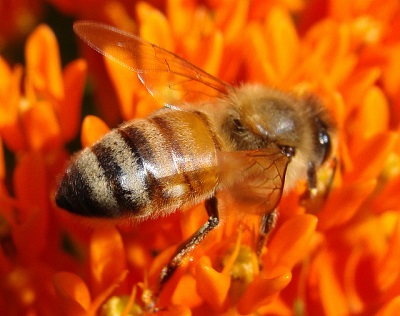
A group of environmental and food safety organizations will sue the U.S. Environmental Protection Agency over its approval of an insecticide that the groups say will harm threatened and endangered wildlife.
The Center for Biological Diversity, the Center for Food Safety and the Defenders of Wildlife sent a formal notice of intent to sue to EPA Administrator Gina McCarthy this week claiming that by approving the insecticide flupyradifurone in January the agency is in violation of the Endangered Species Act.
“EPA’s registration of flupyradifurone – and its approval of three products containing flupyradifurone – will likely jeopardize federally-listed species and adversely modifies the critical habitat of listed species,” the letter said.
The EPA has 60 days to respond to the groups’ claims or the matter goes to court.
The agency approved the insecticide as an alternative to neonicitoinds, which are suspects behind the widespread bee kill offs in recent years. The EPA’s approval followed a 2012 application from Bayer CropScience, which simultaneously submitted applications to Canadian and Australian agencies to review the insecticide.
Flupyradifurone, sold as the formula Sivanto, is registered for a number of crops including citrus, cotton and potatoes, according to the EPA, and protects against difficult-to-control insects such as aphids, whiteflies and thrips.
While most pesticides stay on the surface of plants, flupyradifurone, like neonicitoinds, works by infiltrating all plant tissues.
“This toxic, systemic insecticide poisons an entire plant and anything that feeds on it, but the EPA has turned a blind eye to how it will hurt imperiled wildlife like the endangered Karner blue butterfly,” said Lori Ann Burd, environmental health director at the Center for Biological Diversity, in a prepared statement.
The groups’ letter said that the EPA violated the Endangered Species Act by not consulting with the U.S. Fish and Wildlife Service and the National Marine Fisheries Service about flupyradifurone’s potential to harm endangered and threatened species.
The EPA reported the compound was a low risk to non-target plants and animals.
In its announcement about the approval, the EPA said, “laboratory-based studies indicate that the compound is practically non-toxic to adult honeybees.”
The EPA report found that, according to 38 bee tests it reviewed, the pesticide did not result in any “adverse effects on overall colony performance or overwintering capacity” compared to bee colonies that were not exposed.
The groups charge that, while flupyradifurone may be less harmful than neonicotinoids for bee colonies, solitary bees are still at risk.
“There are 4,000 species of solitary bees living in the United States whose wellbeing the agency’s claim effectively ignores,” their letter said.
Reed Johnson, an entomologist and assistant professor at The Ohio State University, said in an email that “Bayer has done an unprecedented number of lab and field tests on bees in support of this registration.”
“That being said, I know of no independent research that has been done on this compound,” he said.
Join us in defending the truth before it’s too late
The future of independent journalism is uncertain, and the consequences of losing it are too grave to ignore. To ensure Truthout remains safe, strong, and free, we need to raise $27,000 in the next 24 hours. Every dollar raised goes directly toward the costs of producing news you can trust.
Please give what you can — because by supporting us with a tax-deductible donation, you’re not just preserving a source of news, you’re helping to safeguard what’s left of our democracy.